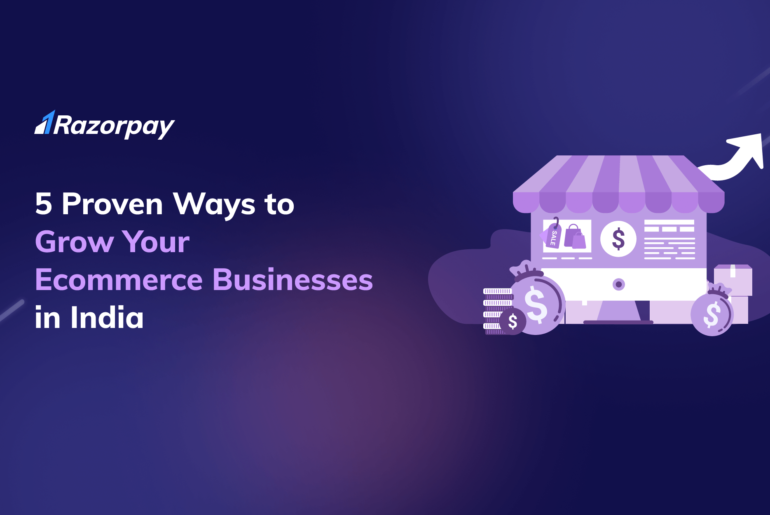Resilient. Innovative. Progressive.
These three words can be used to describe small businesses, and women, in general, as well.
It is true that small businesses across the country have had to bear the brunt of a slowing economy ever since the COVID-19 pandemic hit the world. But it is also true that the SMBs displayed an amazing sense of resilience to stay afloat using innovation and digital transformation as tools to fight the odds.
A recent study conducted by Bain & Company, Google and AWE Foundation surveyed close to 350 women entrepreneurs and small business owners in urban India. It was found that almost 73% of women were negatively impacted by the pandemic with 35% experiencing a significant decline in revenue (25% to 75%). The revenue of almost 20% of women entrepreneurs dwindled to zero!
To understand how women were impacted and what measures can be taken to help them get on their feet again, we interacted with Sairee Chahal, Founder, SHEROES, moderated by our SMB Business Head Vedanarayanan Vedantham, on the Twitter Spaces platform.
The missing middle in the Indian small business ecosystem and women
The Indian MSME segment struggles with the missing middle challenge. While there is a good amount of distribution of small businesses in the country, a very small percentage of them make it to the middle segment, which paves way for them to grow BIG.
However, when we talk of women, this missing middle has grown larger in size post-COVID-19 pandemic. “Women in our country have two jobs – domestic and professional. They need to make sure their domestic responsibilities have been fulfilled before they can commit to anything professionally. Although there are women entrepreneurs at every nook and corner, they are almost invisible to us. To solve this issue, a framework needs to be put in a place to help them overcome the stereotypes, labels, societal barriers, and lack of access to resources,” explained Sairee.
Democratising access for women small business owners
In the wake of the COVID-19 pandemic, many businesses have gone digital and are beginning to gain access to more avenues of growth and flourish.
Democratising access for women entrepreneurs means two things, explains Sairee. “One is making sure that entrepreneurs get access to the Internet for free forever, and the second is to create ecosystems which can enable women to flourish and prosper, and take the next steps in growing their businesses. For instance, something like filing GST should be simplified for women entrepreneurs and save them from spending a whole lot of their time processing paperwork. This holds true for the entire Indian entrepreneur community as well.”
“With the onset of COVID-19 pandemic, we have seen a positive change in the behaviour of business owners towards digitisation. Be it payments, deliveries, logistics, or any other aspect of business, small business owners are on the road to digital empowerment, and we need to continue this trend,” adds Sairee.
Women small business owners and professionalism
An interesting question that was asked during the conversation by a listener was – “How can women come across as more professional?”.
Answering this question Sairee agreed that women need to fight many labels and also fight to make the world take them “seriously”. Continuing the answer she said, “A woman needs to learn the rules of the game early on, especially if she is an entrepreneur. And this is where ecosystems like SHEROES and other women-centric entrepreneur communities come in. These are safe spaces for women for peer-to-peer learning and growth, and we need more and more of these ecosystems in place.”
The financial literacy challenge for women in small businesses
Women always have faced challenges when it comes to raising capital for their business, and COVID-19 made it even worse. However, Sairee recounts an inspiring story of a women entrepreneur – “We have a woman from Hisar who used to be a school teacher, and took a loan set up a business to train and skill other women; today she runs a centre that has trained about 3000 women in her religion nearby villages.”
Real-life instances like these are an example for all other women in small businesses, who are doing their best to overcome societal and gender biases.
Direct-to-Consumer: Best space for women small business owners to grow
Sharing her experience, Sairee says that D2C is an exciting space for women in the current times. “We (SHEROES) do distribute about 50 to 60 D2C brands, and 50% of these are owned by women! The D2C narrative is definitely being researched by women business owners. As business owners, we all want to be close to our customers D2C is a great space to start from. Especially with the digital transformation taking place, newer innovations come into place and I think some of these are fantastic trends to look out for.”
In the end, it is about women helping women in uplifting their status, beating the gender biases and moving ahead in a progressive direction. Women are more than the labels society has set for them, and we need more communities like SHEROES to bring women heroes to the forefront and set examples.
Follow us on Twitter to join us in our next Twitter Spaces conversation!



